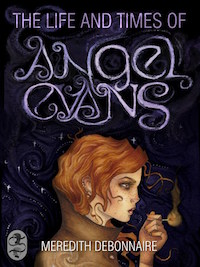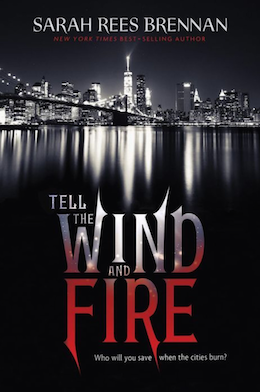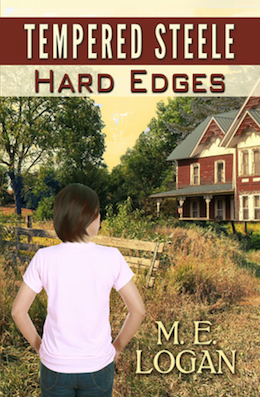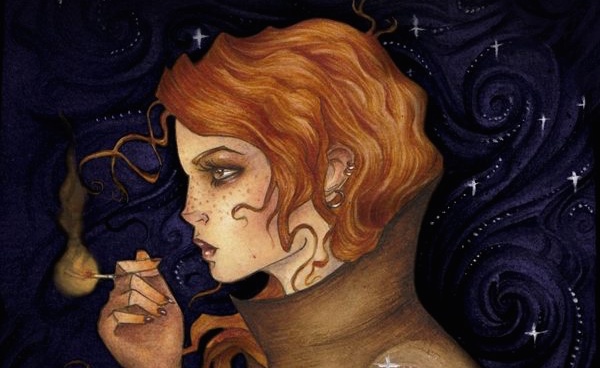If you follow my Twitter feed, you might have noticed me talking about my mental health in the last while. Sometimes, things get bad. It can be sudden and unpredictable: one week I’m rolling along, perfectly all right, and the next I’m besieged by visions of walking into traffic.* (Or my throat closes up with panic, or I feel exhausted and worthless. Or I can’t make decisions, because everything is too much. Things like that.)
Books have often been a sort of salvation for me. There aren’t a lot of science fiction and fantasy novels that consider issues of mental health without either glamourising or minimising them–the final volume of Ann Leckie’s Ancillary trilogy, Ancillary Mercy, is one of the few that immediately leap to mind. I don’t know if that’ll ever change, much: there’s a lot that’s unknown about how minds work, and for all I prefer not to acknowledge the fact, there’s still quite a bit of stigma attached to mental illnesses and to neurodiversity. For me, books are an escape, a pleasant diversion: they take me away from thinking too much and let me put some space between me and whatever intrusive loop has been playing in my brain.
 So let me tell you about a couple of stories that have let me escape recently, when heaven knows I needed it.
So let me tell you about a couple of stories that have let me escape recently, when heaven knows I needed it.
There’s a little story by Meredith Debonnaire, “The Life and Times of Angel Evans,” published by the Booksmugglers earlier this year. Angel Evans is a young woman with a peculiar history, living in the aftermath of an act of heroism that she doesn’t like to think about. Angel Evans saved the universe, you see. But saving the universe meant she destroyed her home. Now she lives in a reckless self-hating sort of fashion, with a ghost who loves her and a terrible job. “The Life and Times of Angel Evans” is, at its heart, a story about consequences and self-forgiveness. It’s gorgeously written with a sense of humour that varies from biting to blithe. And it has a great voice, and great characters.
 I’m not sure you can call Sarah Rees Brennan’s Tell The Wind and Fire a little story. (I’m not sure Brennan does small-scale, even when she keeps things to a local setting: the Lynburn Legacy series might be proof of that.) Tell The Wind and Fire is a novel set in a magical future (I think it’s future) New York, a New York city that seems oddly divorced from any sort of government beyond the local. People are divided into two groups: Light magicians, who are the majority and who have all the good stuff, basically, and Dark magicians, who are demonised and forced into ghettoes. (Dark magicians are still, however, necessary for Light magicians’ survival, so they haven’t been exterminated.) This might be another shallow racism or sectarianism analogy, save that Brennan’s story is about a girl who has struggled to be safe, to achieve security–and now, when she’s just beginning to feel safe, she’s faced with the possibility that safety may never been possible. It’s a story about love and growth and choices, with an urgently readable voice. Brennan’s characters, as always, are compelling, and the tension drives all the way through to the novel’s climax.
I’m not sure you can call Sarah Rees Brennan’s Tell The Wind and Fire a little story. (I’m not sure Brennan does small-scale, even when she keeps things to a local setting: the Lynburn Legacy series might be proof of that.) Tell The Wind and Fire is a novel set in a magical future (I think it’s future) New York, a New York city that seems oddly divorced from any sort of government beyond the local. People are divided into two groups: Light magicians, who are the majority and who have all the good stuff, basically, and Dark magicians, who are demonised and forced into ghettoes. (Dark magicians are still, however, necessary for Light magicians’ survival, so they haven’t been exterminated.) This might be another shallow racism or sectarianism analogy, save that Brennan’s story is about a girl who has struggled to be safe, to achieve security–and now, when she’s just beginning to feel safe, she’s faced with the possibility that safety may never been possible. It’s a story about love and growth and choices, with an urgently readable voice. Brennan’s characters, as always, are compelling, and the tension drives all the way through to the novel’s climax.
I’d have honestly preferred a bit more detail in the worldbuilding, but I’m biased like that.
 M.E. Logan’s Tempered Steele: Hard Edges is the sequel to a novel about a community of queer women in a nearly post-apocalyptic USA. Natural disasters have destroyed the economy and much of what we take for granted about the social contract, giving Logan’s novel an almost 19th-century frontier feel. This is very much a novel of character, one about found family, though it’s set against a backdrop of political upheaval and modern-day slavery. Unfortunately for my attraction to narrative completion, my the end of the novel, only the emotional upheavals have reached some kind of resolution. But for all that, I found it an enjoyable read–and less problematic than its immediate predecessor.
M.E. Logan’s Tempered Steele: Hard Edges is the sequel to a novel about a community of queer women in a nearly post-apocalyptic USA. Natural disasters have destroyed the economy and much of what we take for granted about the social contract, giving Logan’s novel an almost 19th-century frontier feel. This is very much a novel of character, one about found family, though it’s set against a backdrop of political upheaval and modern-day slavery. Unfortunately for my attraction to narrative completion, my the end of the novel, only the emotional upheavals have reached some kind of resolution. But for all that, I found it an enjoyable read–and less problematic than its immediate predecessor.
It’s not skiffy, but regular readers of this column might be interested in Erica Cameron’s YA Assassins: Discord. Assassination is the family business, one which sixteen-year-old Kindra’s been brought up to excel in. (Her family is not exactly a model of healthy non-abusive family dynamics.) Then a job goes wrong and she finds herself kidnapped by a mysterious girl with green eyes, and her whole life gets turned upside down.
Assassins: Discord is a bit rough in places, but it’s an explosive thriller with queer female protagonists. And fun. (Did I mention explosive? Things go boom. A lot.)
Fun’s important.
*If you experience suicidal ideations, or have periods of depression or anxiety? Talk to someone. A friend, a doctor, someone. I’ve been living with this for ten years. I’ve come to think of what troubles me as a chronic, intermittent condition. The symptoms vary in presentation and in intensity–which was a difficult realisation to come to: it means that I can be taken by surprise still when I think everything is just fine. I have supportive friends, access to healthcare options, and try to balance my exercise, diet, and sleep patterns as much as I can. Not everyone is as lucky, but you’re not alone, and you don’t deserve to be miserable. And if you ask for help? Most people will treat you with a lot more compassion than you extend to yourself.
Ask me how I know this, because goddamn if I haven’t bored the shit out of myself with my own misery sometimes.
Editor’s Note for U.S. readers: If someone you know exhibits warning signs of suicide: do not leave the person alone; remove any firearms, alcohol, drugs or sharp objects that could be used in a suicide attempt; and call the U.S. National Suicide Prevention Lifeline at 800-273-TALK (8255) or take the person to an emergency room or seek help from a medical or mental health professional.
Liz Bourke is a cranky person who reads books. She holds a Ph.D in Classics from Trinity College, Dublin. Find her at her blog. Or her Twitter.










